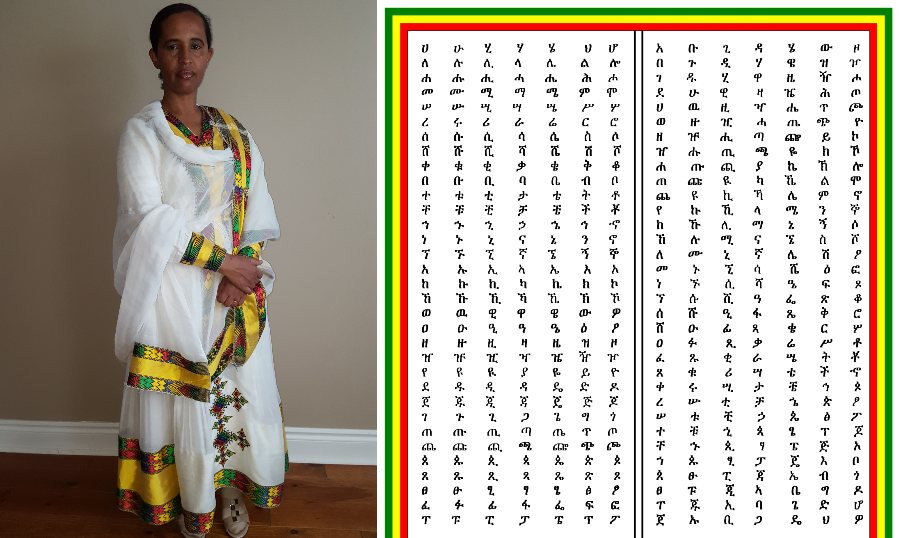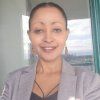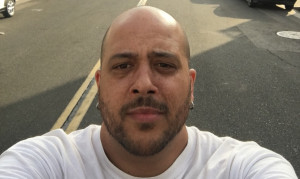In true cultural tradition, the elders would regularly sprinkle vibrant observations into everyday conversations to add flavour to what might otherwise be mundane lessons.
Through proverbs like “ende ageru yinageru” — the English equivalent of “When in Rome, do as the Romans do” and “abatwan satawk ayatwan nafek” — which translates to "She is missing her grandfather though she doesn’t know her father" which alludes to the importance of knowing one's own identity and culture before others, ancestral knowledge has passed from generation to generation.
I think it is this wisdom coupled with her passion for mentoring children that inspired Ph.D. Mulu Geletu, a senior research associate at the University of Toronto, to teach Amharic (the official working language of Ethiopia) to children at Peel District School Board’s International Languages Program.
The story began three years ago when a group of Ethio-Canadian parents shared concerns over their children losing ties to their Ethiopian roots while being immersed in Canadian culture. More importantly, they wanted their kids to maintain a connection with Amharic so they could communicate over the phone with relatives back home.
As a result, they collaborated with other like-minded parents and advocated for a course in Amharic to be taught through the Peel District School Board’s International Languages Program. The Board approved the application, arranged a class at Brampton Centennial Secondary School, and invited interested students for registration.
On the day of registration, the interested families discovered that the school was still looking for a teacher. Dr. Geletu, seeing the disappointment of the families in attendance, decided to volunteer. Although Dr. Geletu had spent all her working life mentoring young people, she had no experience teaching to a younger crowd, much less a language course.
“I volunteered for my son and children in the community.” Dr. Geletu explains. “I didn't want to disappoint the eager kids, so I decided to help.”
The weekly course is offered free of charge to kids in kindergarten through Grade 8, and its chief objective is to improve their communication skills, inspire them to know about their heritage, and help them understand how to get involved with community services. Currently, around 40 students are taking the course and two volunteer teachers.
Dr. Geletu prepares her own lesson plans, gathering books and other teaching materials.
“I am so glad to spend two hours per week for my community and I miss it during the weekdays until Saturday arrives,” Dr. Geletu says.
For their part, the students have made amazing progress and can now write short sentences.
"Parents are happy about the results and leave us with positive feedback," adds Dr. Geletu.
The class also explores topics related to Ethiopian culture and history.
“Ethiopia has a special place in world history among Black people because it never surrendered to white supremacy and it's not just our history,” Dr. Geletu insists. “It is the history of all Black people and anyone who is fighting against racism and discrimination. Our history, knowledge, and wisdom are documented in our oral and written literature.”
Dr. Geletu believes the lessons can help children obtain knowledge and skills that might help them later in life.
“So, other than being introduced to a new language, knowing an Ethiopian language provides children with the opportunity to explore ancient wisdom and learn about the stories of those who paved the way for the freedom of Black people,” says Dr. Geletu, giving the example of Ge’ez, another Ethiopian language spoken since around 2000 BCE. Many historical books and ancient manuscripts that paved the road to civilization were written in Ge’ez, and the University of Toronto has been offering a Ge’ez course to its students for the last few years.
Ethiopia Culture Day Celebration
Another exciting component of the International Language Program’s Amharic class is the annual Ethiopian Culture Day that takes place every May. This year, the event was organized virtually with the presence of students, instructors, parents, and other guests from the community.
The event successfully celebrated and depicted the history of Ethiopia, a country that’s over 3,000 years old, as the children gave presentations on a range of topics that included languages, history, geography, native animals, rivers, lakes, and historical landmarks. The students wore cultural attire and spoke both Amharic and English while discussing holidays and cuisine. Included in the celebration was the famous Ethiopian coffee ceremony, where attendees explored the origins of coffee and other interesting facts. They also paid homage to world-famous Ethiopian athletes and put on a fashion show where they wore traditional clothes and danced to Ethiopian music. In a show of solidarity with the Ethiopian people, they also lent their support to The Great Renaissance Dam, a plan that would utilize the Abbay River to produce electricity and is the largest hydropower project in Africa.
The issue of racism and discrimination, specifically the depiction of certain people as first-class or second-class citizens, also came up in discussion. Grade 7 student Feben Mubarek suggested the topic be part of the cultural day event where the last Ethiopian emperor, H.I.M. (His Imperial Majesty) Haile Selassie I, was quoted from his famous October 4, 1963 speech at the UN.
“Until the philosophy which holds one race superior and another inferior is finally and permanently discredited and abandoned. That until there are no longer first-class and second-class citizens of any nation. That until the colour of a man's skin is of no more significance than the colour of his eyes. That until the basic human rights are equally guaranteed to all without regard to race. That until that day, the dream of lasting peace and world citizenship and the rule of international morality will remain but a fleeting illusion to be pursued but never attained...Until all Africans stand and speak as free beings, equal in the eyes of all men as they are in the eyes of Heaven, until that day, the African continent will not know peace. We Africans will fight, if necessary, and we know that we shall win, as we are confident in the victory of good over evil."
-H.I.M Haile Selassie I
“Ethiopia knows that inequality is a bigger issue than what everyone makes it out to be — equality affects both individuals and communities all around the world, but as the quote suggests, the idea of equality is nothing but a vision if we continue to label one race as superior and the other race as inferior,” says Feben of her interpretation of the quote.
Feben considered Ethiopia’s history of fighting against colonization by Italy, a country that had colonized multiple African countries at the time, and Ethiopian’s refusal to be colonized. It won the war, much to everyone’s surprise, and remains uncolonized to this day.*
“Injustice is something that Emperor Haile Selassie thought is an important issue, and many people, Ethiopian or not, agree with him,” Feben says. “We can only hope that inequality will stop but many wonder if it’s even possible.”
"Racism damages one’s mind,” adds Dr.Geletu. “I worry for my kids and discussed this topic with them. Parents may not know this, but their children may be suffering from racism.”
Dr. Geletu recommends that the Ethiopian community give more attention to anti-Black racism in Canada and work to help kids overcome the challenges.
“The first thing is to teach them who they are, what they have and to be proud of themselves,” Dr. Geletu offers. “This will teach them confidence, resilience, and how to protect themselves.”
Dr. Geletu is now preparing to offer the course to high school students, “We have applied for it to be a high school credit class but it’s not approved because we don't have an adequate number of students yet,” says Dr. Geletu. “Hopefully, we will have the required number of students and should be able to start the classes this year or next.”
Aside from the in-class sessions, Dr. Geletu feels parents should take time out of their busy schedules to support their children in learning their heritage, language, and culture at home, as well as emphasizing the importance of volunteering in their community. Her hope for the class is for students of Ethiopian and non-Ethiopian descent to join, contribute, and learn something new about Ethiopian culture.

 By
By 





